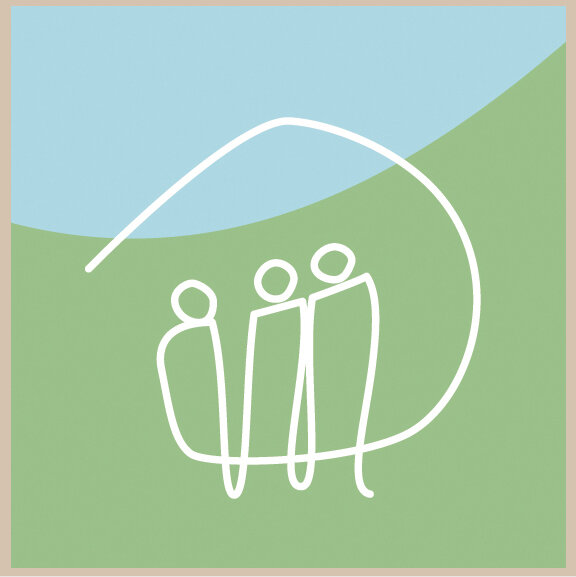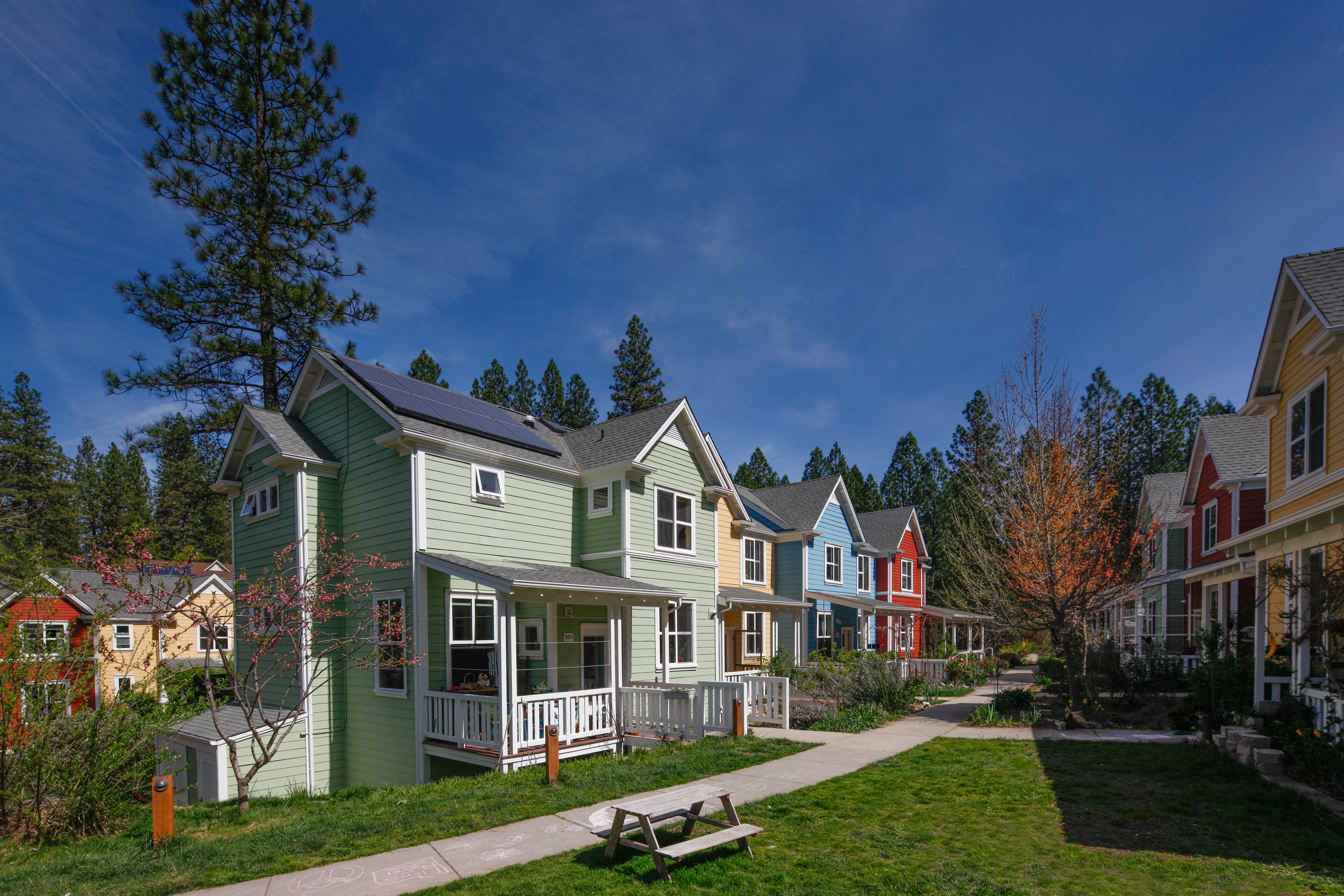Lindy Sexton sat down with Joy Castro-Wehr in 2016, who was at the time a senior in high school and lived in Nevada City Cohousing with her family. She is a social activist and a worldly-thinker, and contributes much of this to living in cohousing.
Frog Song Cohousing in Cotati, CA. Architecture by The Cohousing Company
Lindy: How long have you lived in cohousing?
Joy: Since I was 8. My family was aware of cohousing and had a cohousing-esque relationship with neighbors in Oakland; we took down the property fence, had a common space, and shared things. We moved to Nevada City when I was 4 because of public Waldorf school. And lived on a large property in Nevada City. When we moved into cohousing, I initially missed my big backyard, but soon realized that I used the cohousing acreage behind the houses much more than my old backyard because I had more friends to share it with.
Lindy: What do you like about living in cohousing?
Joy: In cohousing, I am so filled with love, there is no room for anything else. Challenges do exist, but it is easier to deal with these challenges because of support from cohousers. Just as my neighbors have influenced me with their worldly perspectives, they also have taught me how to have opinions and ways to voice those so others aren’t offended. Most people living in cohousing are there because they share the same interest in and desire to contribute to community. Otherwise, why live in cohousing? Relationship building is much easier because of proximity in cohousing. It’s a lot less work to say “hi” because my neighbors are right across the sidewalk.
Lindy: How do you contribute to the community in your cohousing?
Joy: Every person in the community has an aspect of cohousing that they connect through. For some, it’s gardening. For others, it’s going on skiing trips with neighbors. The dinner table is my family’s “place of connection”. So common meals are how we become close to others around us. In fact, just the other night, I had a deep and inspiring conversation with some neighbors at a common meal.
I also know that the kids look up to me. I babysit for many of my neighbors and know the kids in my neighborhood like they were family. I am accountable for how I act around the three-year old that lives next to me, which is one of the reason’s I choose not to do drugs and get drunk.
Lindy: Do you still experience challenges outside of your community, for instance, peer pressure at school?
Joy: (sigh) Outside of our cohousing community, I deal with the same peer pressure that all teens deal with. Because of my family and cohousing, I feel that I am not missing anything in my life. I’ve learned to ignore the peer pressure I know is not good. I simply do not have time to pursue something that alters my sense of being.
I never needed to look beyond my community because there was always someone, some experience to fill the gap. People often get pressured into drugs and abuse alcohol because they are “lacking” in something. It’s like Play-Doh, filling holes in someone’s life, and Play-Doh doesn’t last for long. Cohousing fills in some of those holes. And community is more resilient.
That said, cohousers like to have social time and have parties. There is a group of cohousers that like to brew beer in our cohousing. They get together and play pool and try their new brews. And every once in awhile, someone will bring a nice bottle of wine to a common meal and shares it with others. Treating alcohol like a social treat, rather than a crutch teaches kids that it’s okay to appreciate every once in awhile.
Nevada City Cohousing in Nevada City, CA. Architecture by The Cohousing Company
Lindy: Why has cohousing made such an impact on your life?
Joy: I treat many of them like my own grandparents and relatives, but it’s a lot less work to say “hi” because they’re right across the sidewalk. This also means that I have gotten so many different perspectives on life – politics, culture, family, etc. Rather than believing everything my parents’ believed, I had other people to draw experiences from. I was surrounded by different perspectives of people who respected each other’s opinions.
Thanks to Joy for her insight in the abundance of cohousing! If you or someone you know has been influenced by cohousing and you’d like to share it with us, please let us know!




